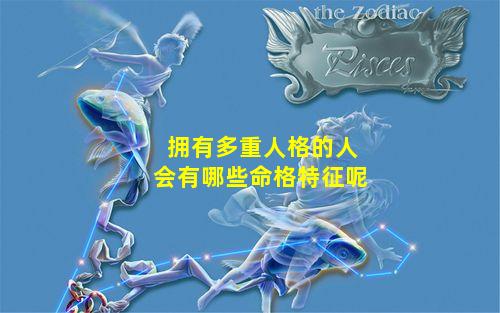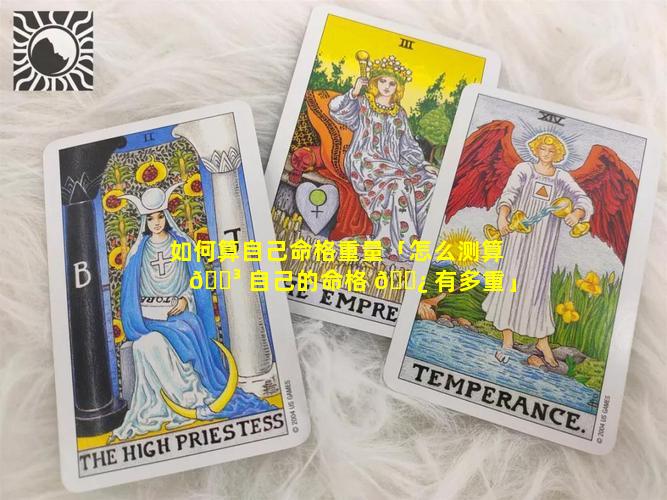拥有多重人格的人会有哪些命格特征呢
- 作者: 周辰儒
- 发布时间:2024-08-21
一、拥有多重人格的人会有哪些命格特征呢
多重人格障碍的命格特征
多重人格障碍(DID)是一种复杂的心理疾病,其特征是存在两个或更多个截然不同的身份或人格状态。这些人格状态通常具有不同的名字、年龄、性别、记忆和行为模式。
DID 的命格特征可能因个体而异,但一些常见特征包括:
身份混乱:个体可能对自己的身份感到困惑或不确定,并可能经历身份解体或失忆。
情绪不稳定:个体可能经历快速的情绪波动,从极度快乐到极度悲伤。
记忆问题:个体可能出现记忆缺失或扭曲,并且可能无法回忆某些事件或经历。
解离:个体可能经历解离发作,其中他们与现实脱节,感觉自己处于梦境或恍惚状态。
自残或自杀倾向:个体可能参与自残或自杀行为,以应对创伤或情绪痛苦。
人际关系困难:个体可能难以维持稳定的人际关系,因为他们不同的身份可能会导致冲突或混乱。
创伤史:DID 通常与儿童期创伤有关,例如身体或性虐待、忽视或情感虐待。
共病:DID 经常与其他心理健康状况共病,例如抑郁症、焦虑症、创伤后应激障碍 (PTSD) 和物质使用障碍。
重要的是要注意,并非所有 DID 患者都会表现出所有这些特征。DID 的严重程度和症状可能会随着时间的推移而变化。
二、拥有多重人格的人会有哪些命格特征呢英语
Multiple Personality Disorder: Astrological Traits
Individuals with multiple personality disorder (MPD) exhibit a complex and multifaceted astrological profile. The following are some of the key traits that may be present in their charts:
1. Strong Planetary Aspects:
MPD is often associated with intense and challenging planetary aspects, such as oppositions, squares, and conjunctions. These aspects create a sense of inner conflict and tension, which can contribute to the development of multiple personalities.
2. Afflicted Moon:
The Moon represents the emotional and subconscious mind. In MPD charts, the Moon is often afflicted by negative aspects or placements, indicating emotional instability and a tendency to dissociate.
3. Prominent Neptune:
Neptune is the planet of illusion, fantasy, and escapism. In MPD charts, Neptune may be prominent, suggesting a tendency to retreat into an inner world and create alternative realities.
4. Afflicted Mercury:
Mercury represents communication and mental processes. In MPD charts, Mercury may be afflicted, indicating difficulties with communication, memory, and logical thinking.
5. Strong Pluto:
Pluto is the planet of transformation and power. In MPD charts, Pluto may be strong, suggesting a deepseated need for control and a desire to dominate others.
6. Multiple Ascendants:
Some astrologers believe that individuals with MPD may have multiple Ascendants in their charts. This suggests that they have different personalities that emerge at different times.
7. Retrograde Planets:
Retrograde planets indicate a turning inward of energy. In MPD charts, retrograde planets may be present, suggesting a tendency to withdraw from the outside world and focus on inner experiences.
8. Challenging House Placements:
The houses in an astrological chart represent different areas of life. In MPD charts, challenging house placements may be present, indicating areas of difficulty and conflict.
9. Synastry:
Synastry is the comparison of two astrological charts. In MPD cases, synastry may reveal challenging aspects between the individual's chart and the charts of their different personalities.
10. Karmic Patterns:
MPD is often considered a karmic condition, resulting from past life experiences. Astrologers may look for patterns in the individual's chart that suggest karmic lessons related to identity, control, and emotional stability.
It's important to note that these traits are not definitive and may not be present in all cases of MPD. However, they can provide valuable insights into the complex astrological dynamics that may contribute to this condition.

三、拥有多重人格的人会有哪些命格特征呢图片
多重人格障碍的命格特征
1. 情绪不稳定
情绪波动剧烈,从极度兴奋到极度抑郁
难以控制情绪,容易冲动行事
2. 身份认同混乱
缺乏稳定的自我意识,感觉自己有多个不同的自我
记忆混乱,对自己的过去和经历感到困惑
3. 解离经历脱离现实的感觉,仿佛自己置身事外
记忆缺失或扭曲,无法回忆某些事件
4. 躯体症状
头痛、胃痛、疲劳等躯体症状
这些症状可能是心理压力的表现
5. 自我伤害
冲动地伤害自己,以缓解情绪痛苦
自我伤害行为可能是寻求关注或控制的一种方式
6. 关系困难
难以建立和维持稳定的人际关系
由于情绪不稳定和身份认同混乱,可能会疏远他人
7. 犯罪行为
某些情况下,多重人格障碍患者可能会参与犯罪行为
这些行为可能是由人格转换或解离引起的
8. 治疗困难
治疗多重人格障碍具有挑战性,需要耐心和专业知识
治疗师需要帮助患者整合不同的自我,并建立稳定的身份认同
9. 预后多重人格障碍的预后因人而异
接受治疗的患者可能会改善症状,并过上更充实的生活
未经治疗的患者可能会继续经历严重的困难
四、拥有多重人格是一种怎样的体验
多重人格障碍 (DID)
拥有多重人格是一种复杂且具有挑战性的经历。它涉及一个人的身份分裂成两个或更多个不同的自我状态,每个自我状态都有自己的思想、记忆、行为和情感。
体验身份混乱:DID 患者经常感到身份混乱,因为他们体验到不同的自我状态,每个自我状态都有自己的名字、年龄、性别和个性。
记忆丧失:患者可能经历记忆丧失,无法回忆某些事件或时间段。这是因为不同的自我状态可能无法访问彼此的记忆。
情绪波动:DID 患者可能经历情绪波动,因为不同的自我状态有不同的情绪和反应。
行为差异:患者的行为可能因不同的自我状态而异。一个自我状态可能表现得外向和健谈,而另一个自我状态可能表现得内向和害羞。
身体症状:DID 患者可能经历身体症状,例如头痛、胃痛或疲劳。这些症状可能是由不同的自我状态之间的压力或冲突引起的。
社会困难:DID 患者可能在社会交往中遇到困难,因为他们可能表现出不同的行为和情绪,这可能会让其他人感到困惑或不安。
创伤:DID 通常是由儿童时期的严重创伤引起的,例如虐待、忽视或目睹暴力。创伤会导致一个人分裂成不同的自我状态,以应对无法承受的痛苦。
治疗DID 的治疗通常涉及心理治疗,例如:
创伤聚焦治疗:帮助患者处理创伤经历并整合不同的自我状态。
认知行为疗法:帮助患者识别和改变导致症状的消极思维和行为模式。
药物治疗:可以帮助管理与 DID 相关的症状,例如焦虑、抑郁和失眠。
治疗 DID 是一个漫长而困难的过程,但它可以帮助患者整合不同的自我状态,改善他们的整体功能。




